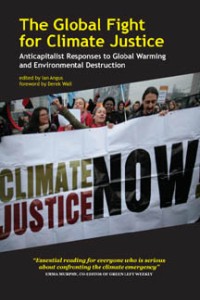-

Review: The Crimes of Empire: Rogue Superpower and World Domination
The Crimes of Empire serves to bookend Boggs’ troika of works which detail the gradual entrenchment of militarism in the American social consciousness and its role in powering global imperial designs.
-

Review: Canada and Israel: Building Apartheid
Thousands of books describe various aspects of the Palestinian/Israeli conflict … This is the first book to focus on Canadian support for the dispossession of Palestinians, for a state based on one religion, and for the last major European colonial project.
-

Compassionate analysis of homosexuality in the Canadian military
Paul Jackson’s One of the Boys is a complex, layered, and compassionate analysis of homosexuality in the Canadian military during World War II. Through careful and painstaking research, using archival evidence including court martial proceedings and interviews, he writes into World War II a social history of homosexuality in the Canadian Forces—a social history that had been, as he notes, ignored by military historians.
-

Review: The Trotsky
Back in 1980, I took a writer’s workshop at NYU with a third-rate spy novelist named Roy Doliner. There’s one thing he said that sticks with me. He said that comedy is much harder to write than serious fiction. You can learn the craft of writing, more or less, but you can’t learn to be funny. That observation was confirmed once again by Jacob Tierney’s The Trotsky.
-

Review: Beyond Palestine 101
Dr. Nada Elia, academic and activist, a Palestinian from the Diaspora of millions, spoke in Victoria and Nanaimo recently. She said she was not going to give Palestine 101, we should all know the situation there by now.
-

Review: Atomic Accomplice: How Canada deals in deadly deceit
Journalist Paul McKay has done his homework and reveals all in this comprehensive but easy to read exposé of our nuclear history. Add another bag of nails to the coffin of Canada’s image as “a nice peace loving country”.
-

Review: The Global Fight for Climate Justice
Bringing together 46 “anti-capitalist responses to global warming and environmental destruction,” The Global Fight for Climate Justice is not leisurely reading. Ideally, in fact, it should be read collectively, in discussion groups or as background reading for a series of classes or forums. Contributors include Joel Kovel (Enemy of Nature) and John Bellamy Foster (The Ecological Revolution), who have both written extensively about the ecologically destructive essence of capitalism.
-

Review: Energy Security and Climate Change: A Canadian Primer
This primer addresses the reality of climate change and peak oil, the imminence of drowned cities, climate refugees, starvation, more intense resource wars, and the trickery of green capitalists and their funded NGOs such as the Natural Resource Defense Council and Ducks Unlimited. Beyond these crucial themes the reader is given a list of 12 time-buying steps to combat climate change and an endorsation of eco-socialism.
-

Canada’s 1960s
Canada in the 1960s was deeply affected by the civil rights and anti-war struggles in the United States. It was likewise caught up in the anti-capitalist and anti-imperialist movements that swept the world. But in this new and commanding work, Bryan Palmer demonstrates that Canada had its own 1960s which left a deep mark on our history.
-

The emperor’s old clothes
It’s hard to know where to begin with this book, which purports to be a kind of “expose” of the use of Aboriginal traditional knowledge in policy making and ranges far afield into a critique of the idea of Indigenous rights and a survey of problems in the fields of Aboriginal healthcare, education, self-government, land claims, and so on.



